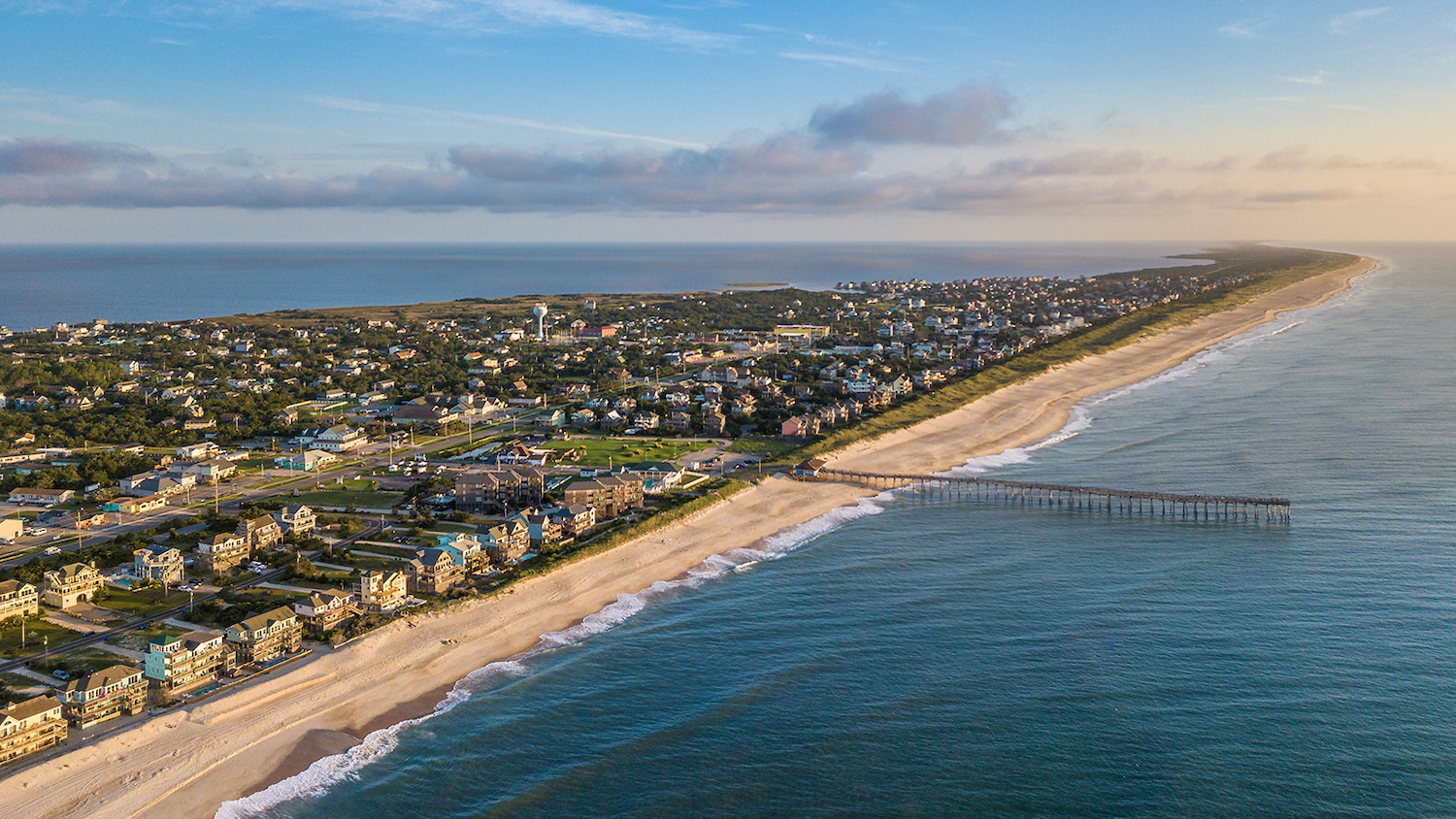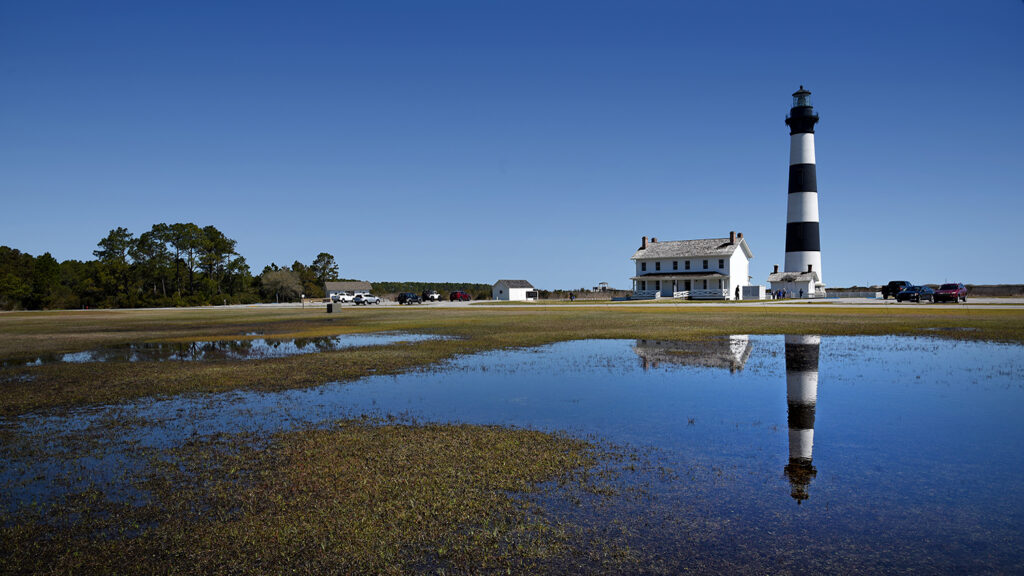New Partnership Aims to Ensure a Sustainable Future for the Outer Banks of North Carolina

With many states lifting pandemic restrictions, millions of people are hitting the road this summer and visiting their favorite vacation spots, a trend that has communities in the Outer Banks of North Carolina struggling to keep up as they experience unprecedented levels of tourism.
Since Dare County reopened its borders to non-residents in May 2020, the Outer Banks has experienced record visitation rates. But even as the spike in seasonal tourists brings a boost to the local economy, the area also faces challenges with its infrastructure, housing and workforce.
That’s why the NC State College of Natural Resources has partnered with Twiddy & Company, a hospitality firm that manages more than 1,100 vacation homes on the Outer Banks, to launch the Lighthouse Fund for Sustainable Tourism.
The fund supports Whitney Knollenberg, an assistant professor in the Department of Parks, Recreation and Tourism Management, as she conducts research and outreach activities across the Outer Banks to promote sustainable tourism development.
“We are thrilled to partner with North Carolina State University to better understand how as a community we can find short and long-term sustainable solutions to the challenges we are experiencing as one of the country’s most popular vacation destinations,” said Clark Twiddy, president of Twiddy & Company. “Our hope is that we are able to build upon Dr. Knollenberg’s findings and recommendations in a way that recognizes the role not just of private and public sector organizations, but also as individual citizens in advocating for what to change, when to change it, and how best to do it.”

For two months this summer, Knollenberg lived in Corolla, a village located in the northernmost region of the Outer Banks, and spoke with residents, business owners, essential and front-line workers, elected officials and other stakeholders across the region, allowing her to gain a better understanding of their tourism-related challenges and to identify future research opportunities that will ultimately lead to solutions.
Knollenberg said she expects to work closely with Outer Banks communities in the years to come, with the goal of becoming a go-to resource for businesses and other stakeholders affected by the region’s growing tourism industry.
“People love the Outer Banks and want the best for it, but there needs to be an equitable platform where everyone in the community can participate in the conversation around these challenges,” she said. “I want to provide that platform and facilitate that conversation toward consensus. Everyone has a different voice and opinion, but a solution will only come from a place of consensus.”
Outer Banks tourism is essential to the North Carolina economy and generates millions of dollars in state and local tax revenue annually, according to Knollenberg. Unfortunately, restaurants and other businesses across the islands are struggling to hire enough workers to fill shifts, forcing them to reduce their hours of operation. In some cases, businesses have had to close.

Knollenberg said the labor shortage is a result of several factors, including the pandemic. While some people are avoiding leisure and hospitality jobs out of fear of the potential health risks of working in crowded settings such as restaurants, others are burning out and quitting due to the stress of their working conditions.
In addition, many seasonal workers can’t find affordable housing options on the Outer Banks as residents are now selling their homes in response to the booming housing market or turning them into short-term vacation rentals for tourists.
“The Outer Banks is one of North Carolina’s greatest tourist attractions, and we want to make sure it stays that way. But we don’t want the benefits of tourism to come at the cost of the communities it serves and their natural resources,” Knollenberg said. “The Lighthouse Fund for Sustainable Tourism will serve as an incredible resource for my efforts to help coastal communities balance these two priorities.”
For the Media: If you would like to speak with Whitney Knollenberg for a story, please contact Laura Oleniacz at ljolenia@ncsu.edu or Andrew Moore at apmoore2@ncsu.edu.
This post was originally published in College of Natural Resources News.
- Categories: